"Skilled in theory, but locked out of practice"
On AI, entry-level jobs and getting onto the career ladder
I came across this turn of phrase on LinkedIn today, and it instantly stuck in my head.
“Skilled in theory, but locked out of practice”.
Credit to Divya Lohiya for a wonderfully vivid piece of writing.
It’s an interesting way to think about the potential impending dilemma of AI, the future of jobs, career ladders and how young people should get into the workplace.
First off, a caveat. I have no idea how any of this will play out, none of us do. This is purely me thinking out loud, and should be taken as such.
If history is any lesson, young people are going to be first to adopt these new tools, and bring a totally new way of working to the table, which in theory, should be remarkably valuable. My initial sense, from both the real world, and the online discourse, is that “younger” people have been more eager to dive in and learn the tools, whilst more established operators are moving with more caution, for better or worse.
The young ones should have a leg up here. This view aligns with Aaron Levie’s take below, and is a fundamentally optimistic one. Master the tools of the next generation, and you’ll be in pole position to build a solid career in the AI era.
The other side of the argument has been floating around LinkedIn and the news all week. TLDR: Initial data suggests that we may already be starting to see the impact of AI on entry-level, or junior positions.
This chart has also been floating around over the last few days, with data from Carta suggesting that hiring has hit a pre-Covid low.
Which brings us back to the quote and title of this article.
“Skilled in theory, but locked out of practice”.
I guess this hypothetical scenario would play out like this:
Young people master the AI toolchain, mindset and way of working.
At the same time, incumbent and established staff at many companies generate just enough productivity gains to reduce the need for hiring for new entry-level workers.
Apart from a minority of superstars, most young people are locked out of applying their newly acquired skills in established companies.
I do wonder if this is just a moment in time though. Many, including us, have hit pause on hiring whilst we figure out what AI can do, and importantly, what it can’t do. My gut feel is, as the hype cools, hiring patterns may start to normalise again, just as they did after the Covid boom.
Long-term, I still believe young people will be fine because:
Innovation and disruption more likely to emerges from the bottom-up
Young people bring new energy, perspective and ideas
The older you get, the harder it is to keep up with new tech
Gun to my head? (Most) of the kids will be alright.

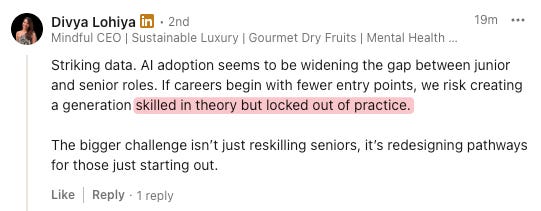
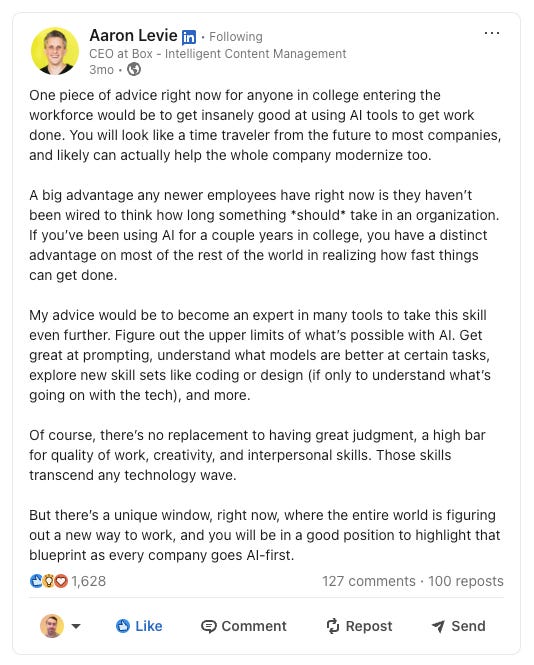
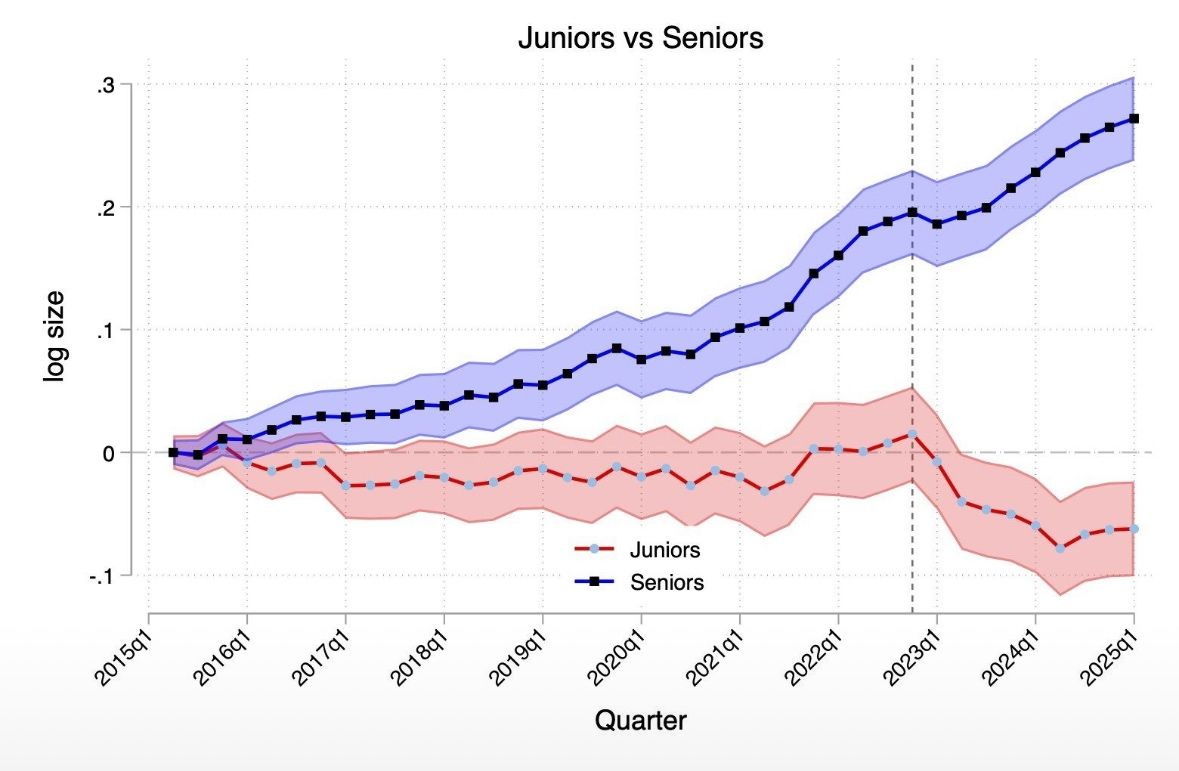
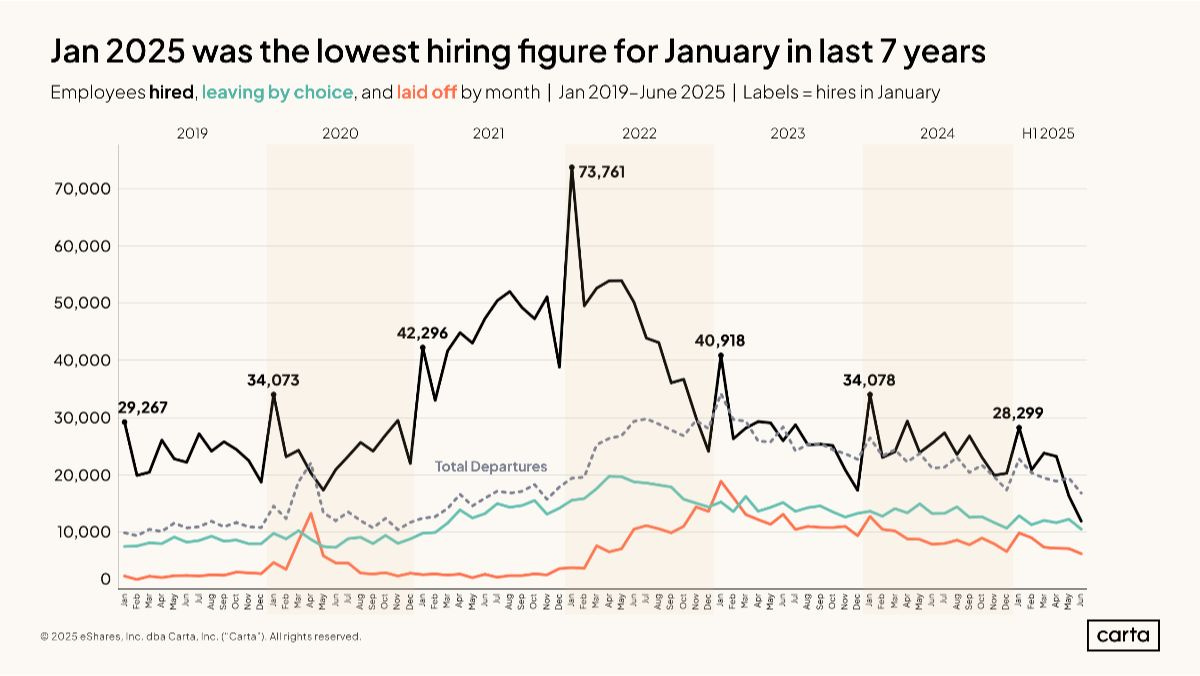
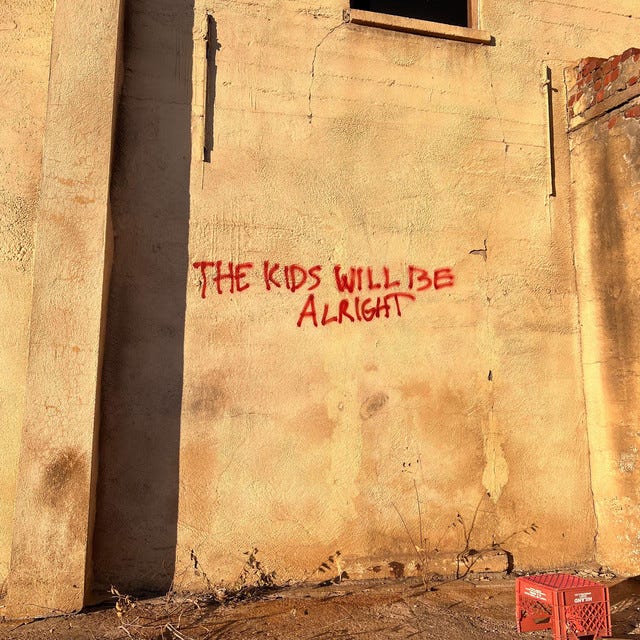
I would also add that the economics will find a new equilibrium use for young labour no matter what. Even if there is reduced demand for young labour, the market will still want to clear. More grads looking for jobs will lower the wages they can earn, and enterprising companies will find a use for it. Any observation about youth unemployment is a short-term observation of a world that hasn't yet fully adapted to a new shock.